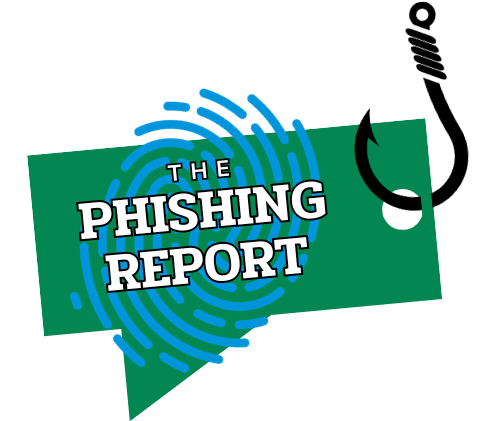Are you worried about the security of your business’s data? Want to reduce the risk of data breaches and ensure your third-party vendors meet cybersecurity standards?
Look no further! Max Gibbard, an IT expert and cybersecurity advocate at Team Logic IT, is here to help. In this article, Max will explore the importance of third-party vendor compliance in minimizing data breaches.
Get ready to enhance your cybersecurity measures and protect your valuable information with Max and Team Logic IT.
Key Takeaways
- Prioritize the security of business data
- Conduct due diligence during vendor selection
- Thoroughly assess reputation, track record, and security practices
- Review references and compliance with industry standards
Understanding Third-Party Vendor Compliance
When it comes to protecting your business data, understanding third-party vendor compliance is crucial. As a business owner, you must prioritize the security of your data and ensure that your vendors are also committed to protecting it.
This requires conducting due diligence during the vendor selection process and evaluating their data protection protocols.
First and foremost, the importance of due diligence in vendor selection can’t be overstated. Before partnering with any third-party vendor, it’s essential to thoroughly assess their reputation, track record, and security practices. This includes conducting background checks, reviewing references, and analyzing their compliance with industry standards and regulations. By taking these steps, you can mitigate the risk of data breaches and ensure that your vendors align with your data security requirements.
Additionally, evaluating vendor data protection protocols is a critical aspect of third-party vendor compliance. You need to assess how your vendors handle and store your sensitive information. This includes reviewing their encryption methods, access controls, and disaster recovery plans. It’s also essential to understand how they monitor and detect potential security threats, as well as their incident response procedures. By thoroughly evaluating these protocols, you can ensure that your data is in safe hands.
Key Risks in Third-Party Vendor Relationships
To mitigate potential risks in your third-party vendor relationships, it’s crucial to assess their data protection protocols and ensure they align with your business’s security requirements. Failing to do so can expose your organization to various vendor risks, potentially leading to data breaches and financial losses. Consider the following key risks in third-party vendor relationships:
- Data Breaches: Inadequate data protection measures by vendors can result in unauthorized access to your sensitive information. This can lead to reputational damage, legal consequences, and financial liabilities.
- Compliance Issues: Non-compliance with industry regulations and standards can put your business at risk of penalties and legal actions. It’s essential to verify that your vendors adhere to relevant compliance requirements, such as GDPR or HIPAA, depending on your industry.
- Dependency on Third Parties: Relying heavily on third-party vendors can create a single point of failure. If a vendor experiences a security breach or disruption in service, your operations may be severely impacted.
Addressing these risks requires a comprehensive approach to vendor risk and compliance management. By implementing best practices for assessing vendor security measures, you can ensure that your third-party relationships are secure and aligned with your business’s security goals.
In the next section, we’ll explore the best practices that can help you assess your vendor’s security measures and establish a robust and resilient third-party ecosystem.
Best Practices for Assessing Vendor Security Measures
To effectively evaluate the security measures of your third-party vendors, utilize a comprehensive checklist of best practices. Conducting a vendor risk assessment is crucial to ensure that your business data is protected from potential breaches. Vendor due diligence plays a significant role in minimizing the risk of data breaches and maintaining the integrity of your IT infrastructure.
Start by assessing the vendor’s overall security posture. Evaluate their security policies, procedures, and controls to determine if they align with your organization’s standards and requirements. This includes reviewing their incident response plan, data encryption practices, and access controls.
Next, evaluate the vendor’s physical security measures. Assess their data center security, including physical access controls, surveillance systems, and disaster recovery plans. This will help ensure that your data is stored in a secure and protected environment.
Additionally, consider the vendor’s network security measures. Evaluate their firewall configurations, intrusion detection and prevention systems, and vulnerability management practices. A vendor with robust network security measures is more likely to protect your data from unauthorized access and potential cyber attacks.
Furthermore, assess the vendor’s employee security awareness training program. Ensure that their employees are trained on best practices for data protection, password management, and social engineering awareness. This will help reduce the risk of human error and increase the overall security of your data.
Lastly, verify that the vendor undergoes regular security audits and assessments. This demonstrates their commitment to maintaining a secure environment for your data. Request documentation of their most recent security audit and review the findings.
Implementing Effective Vendor Contract and Monitoring Processes
To effectively minimize data breaches, you must implement effective vendor contract and monitoring processes. Vendor contract management and monitoring vendor performance are crucial aspects of ensuring the security of your data. Here are three reasons why these processes are essential:
- Enhanced Accountability: Implementing robust vendor contract management ensures that vendors are held accountable for their actions. By clearly defining expectations and responsibilities in the contract, you establish a framework for compliance. This creates a sense of accountability and motivates vendors to prioritize data security.
- Proactive Risk Mitigation: Monitoring vendor performance allows you to identify potential vulnerabilities before they become major security risks. By regularly assessing vendor activities and reviewing compliance with security protocols, you can address any issues promptly. This proactive approach helps to minimize the chances of a data breach and enables you to take corrective actions in a timely manner.
- Continuous Improvement: Effective vendor contract management and monitoring processes enable you to continuously improve your data security measures. By regularly evaluating vendor performance and identifying areas for improvement, you can enhance your overall cybersecurity posture. This ongoing evaluation and improvement process ensure that your data protection strategies remain up to date and aligned with the latest industry standards.
By implementing robust vendor contract management and monitoring processes, you demonstrate your commitment to data security and minimize the risk of a data breach. These processes provide enhanced accountability, proactive risk mitigation, and continuous improvement, ensuring that your data remains safe and protected.
Stay ahead of the curve by embracing innovative approaches to vendor management and monitoring, and safeguard your business against potential cybersecurity threats.
Maintaining Ongoing Vendor Compliance Efforts
As a business owner, you need to consistently maintain ongoing vendor compliance efforts to ensure the security of your data and protect against potential breaches. Implementing effective vendor contract and monitoring processes is just the beginning of a robust vendor risk management program. To truly minimize the risk of data breaches, you must engage in continuous monitoring and actively assess the compliance of your vendors.
Continuous monitoring involves regularly reviewing the activities of your third-party vendors to ensure they’re adhering to the agreed-upon security standards and protocols. This can be done through the use of automated tools that provide real-time alerts and notifications when potential security issues arise. By monitoring your vendors on an ongoing basis, you can identify and address any vulnerabilities or non-compliance before they lead to a data breach.
In addition to continuous monitoring, it’s essential to conduct periodic vendor risk assessments. These assessments evaluate the security controls and practices of your vendors to determine their level of compliance with your organization’s security requirements. By conducting these assessments regularly, you can identify any gaps or weaknesses in your vendors’ security practices and take steps to address them.
Frequently Asked Questions
How Can Businesses Ensure the Security of Their Data When Working With Third-Party Vendors?
To ensure the security of your data when working with third-party vendors, there are several strategies you can implement.
Firstly, prioritize vendor risk management by thoroughly vetting vendors for their security practices. This can involve conducting a comprehensive evaluation of their security protocols and certifications.
Regular audits should also be conducted to ensure that vendors are maintaining the necessary security measures to protect your data. This can help identify any potential vulnerabilities or weaknesses that need to be addressed.
In addition to vetting and auditing, it is important to establish clear contractual agreements with vendors that outline data protection standards. These agreements should clearly state the expectations and requirements for data security and should include provisions for breach notification and remediation.
To stay vigilant, it is important to monitor vendor activity closely. This can involve implementing robust access controls and regularly reviewing logs and reports for any suspicious activity.
What Steps Should Be Taken to Assess the Security Measures of Potential Vendors?
To assess the security measures of potential vendors, start by evaluating their cybersecurity protocols. Look for vendors who’ve implemented industry-standard encryption and authentication methods. Assess their data storage and access controls to ensure your information will be adequately protected.
Additionally, review their incident response and recovery plans to gauge their preparedness in the event of a breach. Conduct thorough background checks and request references to validate their track record.
Taking these steps will help you confidently choose vendors with robust security measures in place.
What Are Some Common Pitfalls to Avoid When Implementing Vendor Contracts and Monitoring Processes?
When implementing vendor contracts and monitoring processes, there are common pitfalls to avoid.
One is failing to clearly define the scope of services and responsibilities. This can lead to misunderstandings and gaps in coverage.
Another pitfall isn’t conducting regular audits and assessments of vendor security measures. This leaves you vulnerable to potential breaches.
To avoid these pitfalls, it’s important to establish clear expectations, conduct thorough due diligence, and continuously monitor vendor compliance.
Following these best practices will help minimize data breaches and ensure a secure business environment.
How Can Businesses Maintain Ongoing Vendor Compliance Efforts?
To maintain ongoing vendor compliance efforts, businesses must prioritize continuous improvement and risk management.
It’s crucial to establish clear guidelines and expectations for vendors, ensuring they meet security standards and regularly update their systems.
Conduct regular audits to evaluate compliance and address any issues promptly.
Implement robust monitoring processes to track vendor performance and identify potential vulnerabilities.
Are There Any Industry Standards or Certifications That Businesses Should Look for When Selecting Third-Party Vendors?
When selecting third-party vendors, it’s crucial to consider industry certifications and evaluate their security measures.
Look for vendors that have obtained relevant certifications like ISO 27001 or SOC 2, which demonstrate their commitment to information security.
Additionally, assess their security measures by reviewing their data encryption practices, access controls, and incident response protocols.
Final Thoughts
Ensuring third-party vendor compliance is crucial for minimizing data breaches and protecting your business’s valuable information. By implementing robust IT infrastructure, using managed IT services, and prioritizing cybersecurity measures, you can significantly reduce the risk of data breaches.
According to a recent study, businesses that properly assess and monitor vendor security measures are 50% less likely to experience a data breach. So, don’t overlook the importance of vendor compliance and take the necessary steps to safeguard your data.

